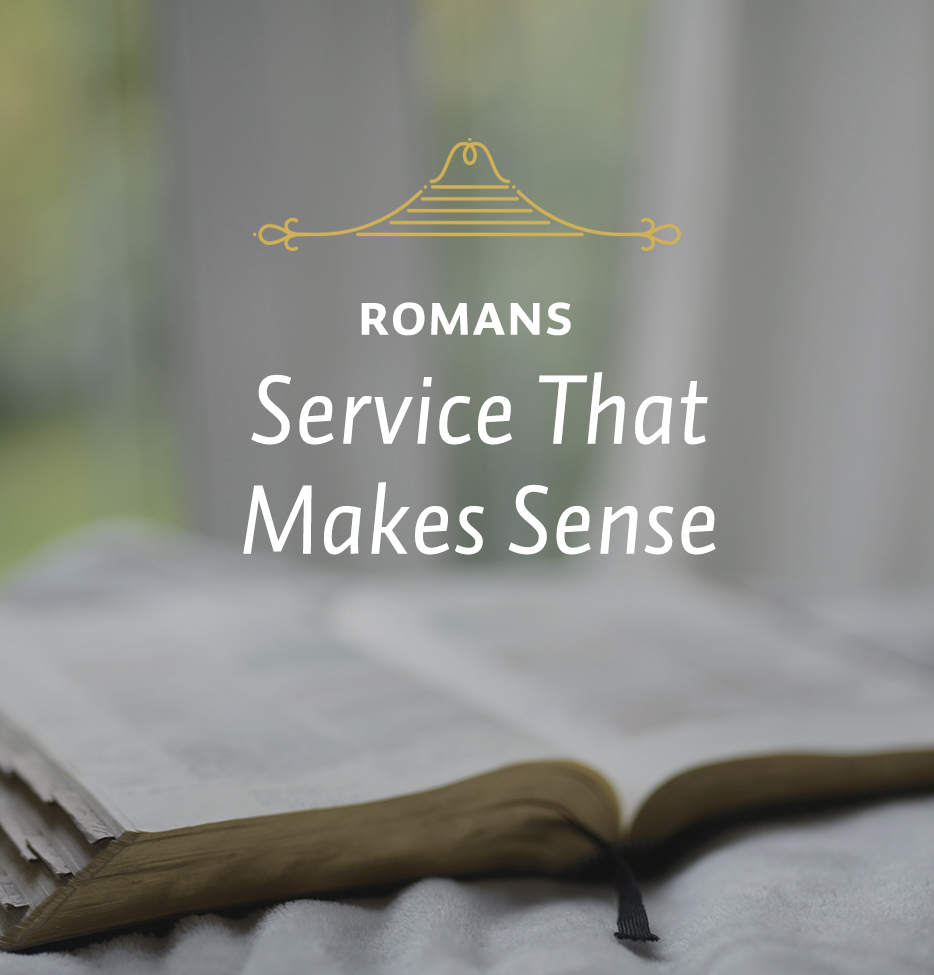To understand this verse well we must understand the kind of service that is required. We have already spent a good bit of time exploring what this kind of service is about. It concerns what Paul calls “sacrifice.” When we were looking at it in detail earlier we saw that it involves three things.
It must be a living sacrifice. That is, our lives are to be given to God in active, continuing service. It involves the offering of our bodies. In other words, we must give God the use of our minds, eyes, ears, tongues, hands, feet and other body parts. We must be holy. Moreover, if we do this, then the sacrifices we make to God will be pleasing to Him.
Our problem, of course, is that we do not want to give ourselves to God. We will give Him things. It is relatively easy to give God money, though even here we are frequently far less than generous. We will even give God a certain amount of our time. We will volunteer for charitable work. But we will not give ourselves. Yet without ourselves these other “gifts” mean virtually nothing to the Almighty.
Let me say that you will only begin to understand the Christian life when you understand that God does not want your money or your time without yourself. You are the one for whom Jesus died. You are the one He loves. So when the Bible speaks of reasonable service, as it does here, it means that you are the one God wants. It is sad if you try to substitute things for that, the greatest gift.
In the Old Testament there is a wonderful illustration of how we do sometimes substitute things for ourselves. It is the story of Jacob’s return to his own country as related in Genesis 32. He had cheated his brother Esau out of his father Isaac’s blessing about twenty years before, and he had been forced to run away because his brother was threatening to kill him. Twenty years is a long time. Over those two decades Jacob had gradually forgotten his brother’s threats. But when it came time to go home, Jacob began to remember the past and grew increasingly fearful of what might happen.
Moving along toward Canaan with Laban behind him and his own country in front of him, Jacob had time to think. He remembered his own disreputable conduct. He recollected Esau’s murderous threats. Every step became more difficult. Finally he came to the brook Jabbok that marked the border of his brother’s territory, looked across to where Esau lived and was terrified. If he could have gone back, he would have. But there was no way to go except forward.
What was he to do?






